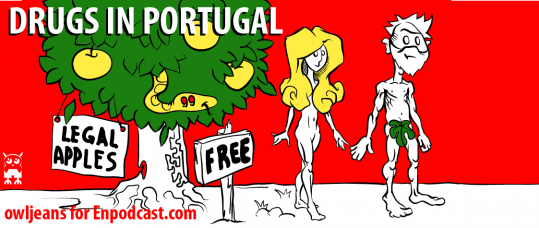In July of 2001 the Government of Portugal made a decision to pass the law that legalized all kinds of drugs, including marijuana, cocaine and heroin. Owning a small amount of these drugs used to give rise to criminal liability but now it's just a public health issue. You don't get arrested. Instead you have to go to the so-called “Dissuasion commission”, where you have to pay a fine or you get prescribed a treatment. But most of the time people avoid penalty.
The idea of decriminalization of drugs came about because the situation in Portugal couldn't have been worse. Criminalization wasn't working all that well. So the Government figured out another way to take things under control. And an amazing thing happened. It worked! According to the official data since 2001 drug-related HIV infections have decreased by over 90%. Compared to the European Union, where drug overdose is a cause of seventeen deaths per million, in Portugal drug-related deaths are just three per million. This figure is the second-lowest in Europe. Young people give up synthetic marijuana, which is especially dangerous. Since 2001 the amount of people off drugs has been growing every year. And for the last 15 years the percentage of drug-related offenders has declined from 44% to 21%.
Portugal is not the only country that has decriminalized drugs. The Netherlands have passed the law about the so-called “tolerance policy” towards soft drugs. You are allowed to buy marijuana but only in regulated cafes. Uruguay has legalized marijuana as well. Now it can be sold in any pharmacy. Even the US have a rather tolerant attitude to marijuana. It's not forbidden in most states, moreover in four states, namely Colorado, Washington, Alaska and Oregon, it's legalized.
Podcast

Прослушало
26
Drugs in Portugal
The idea of decriminalization of drugs came about because the situation in Portugal couldn’t have been worse. Criminalization wasn’t working all that well. So the Government figured out another way to take things under control.
Voiced by: Ekaterina Vasilieva















